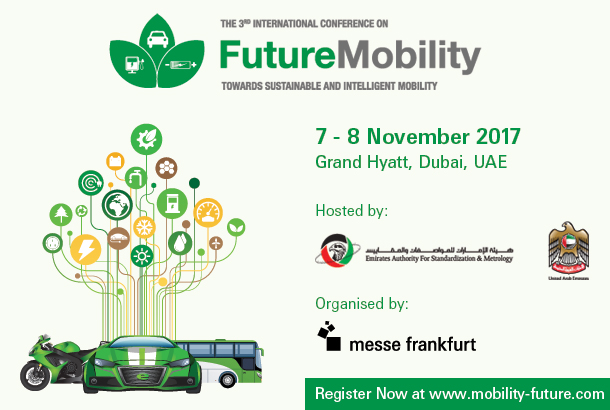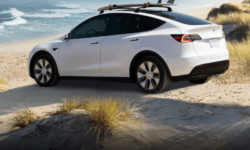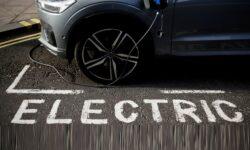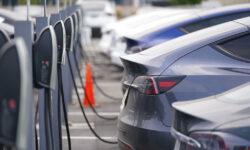Electric Vehicles to rule in the land of oil?
Oil and Electric Vehicles – two things that may be considered opposites – could find an important place in the Middle East. For years, the region has been known for providing its oil to global economies, fueling many combustion cars around the world. But, as the automotive industry evolves and looks to new sources of energy, the Middle Eastern countries are getting ready for a big change.
This year, car sales are expected to reach 1.18 million units in the Gulf Cooperation Council countries. This area is composed of Bahrein, Kuwait, Oman, Qatar, Saudi Arabia and the United Arab Emirates. It’s a market as big as Spain, Mexico or Indonesia, and it’s a key region for car makers like Toyota, Nissan and the luxury brands. Growth of car sales in these countries has meant more oil demand too, but despite their dominant position as oil exporters, electricity is becoming a part in their transport infrastructure.
Many studies show that the growth of Electric Vehicles (EVs) in the region will lead to economic improvement and a better quality of life. These cars are quieter than gasoline cars and deliver good performance and amazing torque for a lower running cost, without the major maintenance cost or environmental impact that comes with an engine.
Dubai is one of the most advanced regional markets when it comes to the adoption of EVs. It is the most populated city in the United Arab Emirates, where car sales are expected to reach 264,000 units by the end of this year. The demand for EVs has been driven by the UAE government who has released the UAE Energy plan 2050 in order to boost clean energy, by cutting carbon dioxide emissions by 70%, increasing clean energy use by 50%, and improving energy efficiency by 40%. The target is to reduce carbon emissions by 15% by 2020, in order to meet the requirements of the Road and Transport Authority (RTA)’s Dubai Plan 2021. They should see the number of hybrid vehicles increase by 50% by 2020, with 10% of the government’s civic fleet being electric by 2020.
The UAE government is boosting the EV market through regulation, policies, incentives and infrastructure investment. The Road and Transport Authority (RTA) has invested in 300 Hybrid taxis, which is 6% of the taxi fleet. It is also working to convert 50% of its taxi fleet into Hybrid vehicles by 2021. Meanwhile, 50 Tesla cars have been added to the Dubai taxi fleet.
In terms of infrastructure, the Dubai Electric and Water Authority (DEWA) has opened 100 electric-car charging stations in the city. In addition to this, the country is investing $15 billion in clean energy companies in order to create a “Silicon Valley” of clean-tech. However, the authorities are also trying to make the adoption of these cars easier and have launched the ‘EV Accelerator Initiative’ to remove the barriers associated with the introduction of EVs in the UAE. That is not all, though. In order to encourage consumers to buy EVs, the UAE government has also announced incentives such as free public charging, free parking, free Salik tags and free registrations for EVs.
Efficient mobility and transportation is also part of Dubai’s plans. A hydrogen station was inaugurated recently in order to boost the demand of Fuel Cell Electric Vehicles (FCEVs). A New hoverbike for the Dubai police force has been developed with a Russian company and it can hover up to an altitude-limited five meters, travel at a speed-limited maximum of 70 km/h, and run for 25 minutes on a charge. Dubai has conducted its first test of a drone taxi service too, that it hopes will become a viable transportation system in the city.
This year, Dubai is hosting the 3rd annual edition of the International Conference on Future Mobility (ICFM), and JATO Dynamics will be one of its media partners. Hosted by the Emirates Authority for Standardization and Metrology (ESMA), the event will be held at the Grand Hyatt Dubai in the UAE on 7 – 8 November 2017. It will be an opportunity to discuss the future of transportation in the region and how smart, sustainable and intelligent vehicles will play a key role in both public and private transport in the smart cities of the future. Held under the theme “Towards Sustainable and Intelligent Mobility”, the conference also features an exhibition that will showcase the latest automotive products, solutions and supporting infrastructure in sustainable and intelligent mobility and transportation.
For more details please visit www.mobility-future.com










